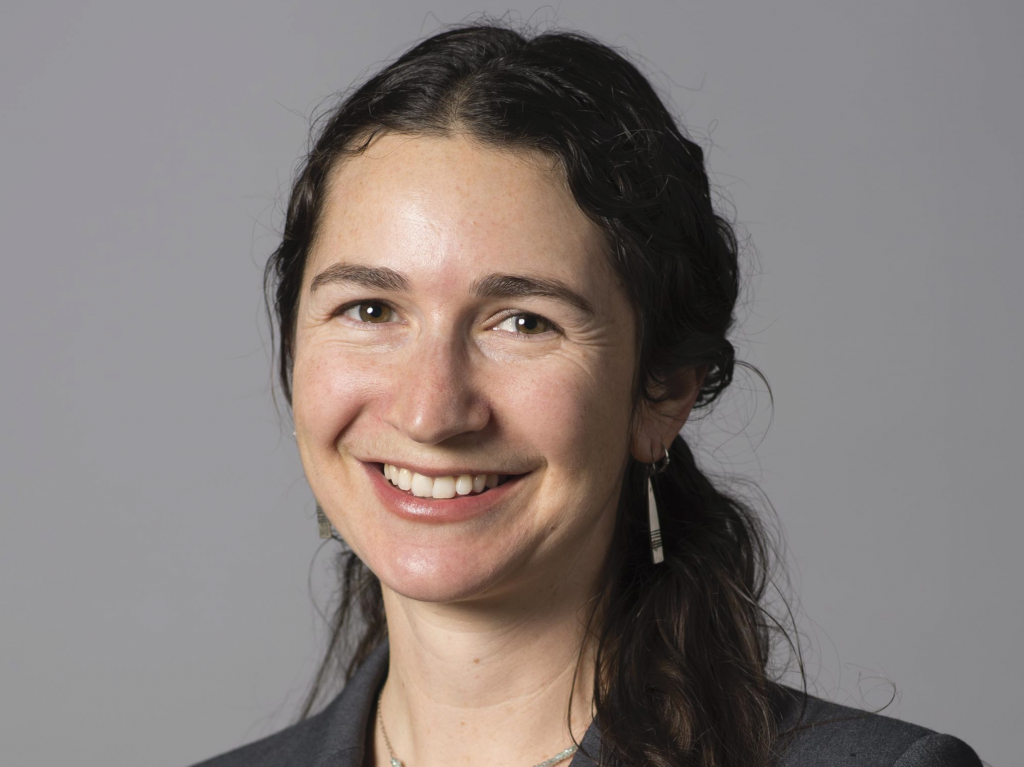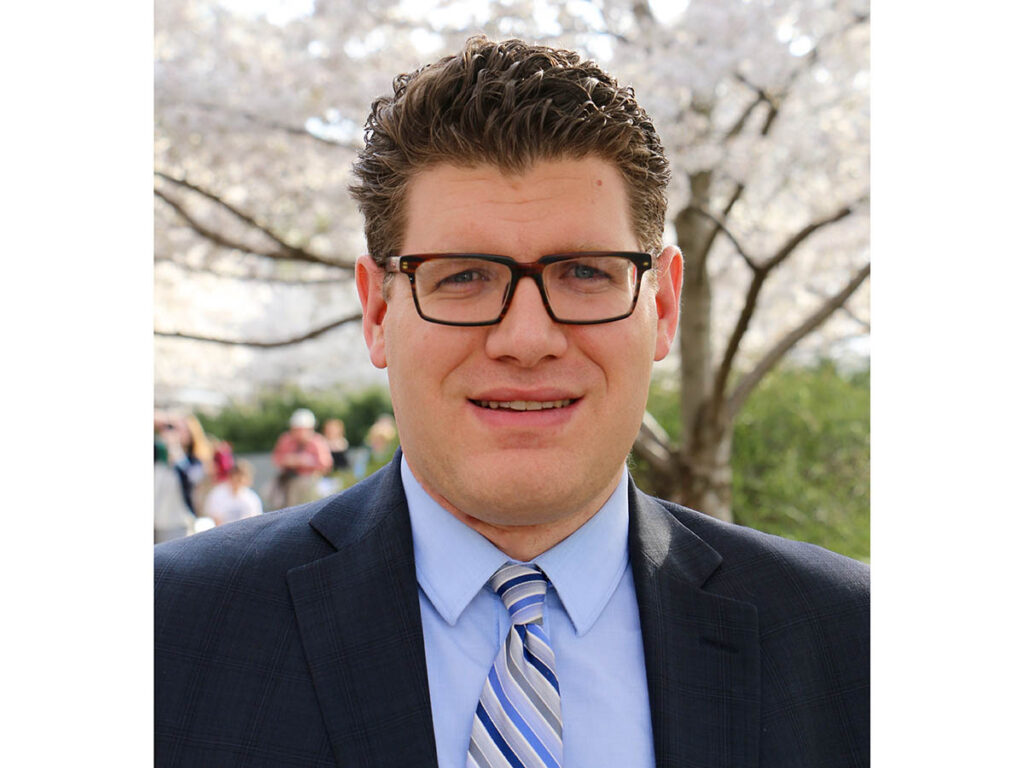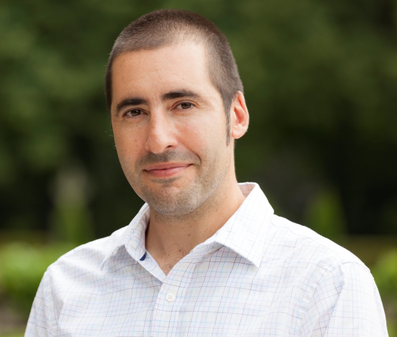One Year Later: Emerson Professors Reflect on Insurrection
The events that transpired at our nation’s capital on January 6, 2021, will live in infamy. What have we learned? How do we move forward? What is falling through the cracks of analysis?
Shortly after the events transpired, three Emerson professors provided their insight into the insurrection. What led up to it? How do we move forward as a country? Emerson Today checked back with those three professors to reflect one year later.
“The insurrection, as I would call it, that took place a year ago, was a critical juncture in which the foundation of U.S. democracy eroded a little further,” said Mneesha Gellman, associate professor of political science in the Marlboro Institute of Liberal Arts and Interdisciplinary Studies and director of the Emerson Prison Initiative.

Gellman said former President Donald Trump’s denial of election results facilitated the events of January 6, and undermined a core aspect of procedural democracy – free and fair elections. That threat has continued over the past year through redistricting, changes in allowable identification at voting locations, timelines to register and submit ballots by mail, closing polling places, and more, said Gellman.
Vincent Raynauld, associate professor of Communication Studies, said there is a cultural problem that both the U.S. and Canada are facing. He feels there’s always been partisanship, but it worsened during Trump’s administration, as well as during former President Barack Obama administration.
“I’ve noticed elections have always been partisan, but what I’m finding interesting is that governing has become partisan,” said Raynauld. “Governing is not being dictated in the interest of the majority. It’s following through for your hyperpartisan followers. Less so for Barack, but more so for Trump and Biden, who is governing for supporters.”

In the classroom, Gellman said she’s discussed the events of January 6, 2021, in two main ways: The quality of democracy and collective action.
“Often, students are surprised that a democracy would allow events like this. But I point out that procedural democracy, where the rituals of electoral democracy are followed, in fact constitutes the lowest common denominator of such a regime type,” said Gellman.
Gellman said we should judge democratic regimes by their substance, particularly how the most marginalized citizens and most vulnerable inhabitants are treated. She added that the white nationalist, xenophobic, antisemitic discourse of many insurrection participants show clear disregard for procedural and substantive democracy. And that even baseline assumptions of U.S. governance are under threat, said Gellman.
Gellman said January 6 provides a case study to explore the rules we apply to collective action.
It also makes clear that identity politics is not something that only applies to marginalized groups or BIPOC communities, but is absolutely a tool of white people as well, she added.
“When we make rules about who gets to protest and how, it is useful to consider how we would apply rules to people who engage in collective action on issues we might disagree with,” said Gellman. “Should the rules governing protest always be equitable regardless of political values? Where do freedom of expression and hate speech converge and diverge? Is the use of force in protest ever justifiable?”

Paul Mihailidis, professor of Journalism, said his Discovering Journalism classes have looked at the event from the lens of covering events like what happened at our nation’s capital.
“What is neutrality when trying to report on an event like that? What does it mean to be balanced and fair?” said Mihailidis.
At the graduate school level, Mihailidis said conversations have looked at civic norms and what leads people to take such extreme actions.
“These are hard discussions to have in the classroom in a journalism sense,” said Mihailidis. “These are aspiring journalists who see this as an opportunity to try to interrogate objectivity. How do you cover that with fairness, balance and not to give too much to sides that may not be deserving of [media coverage]?”
“I see it as an event where there were lots of political identity affirmations,” said Raynauld. “People coming in with Trump flags or QAnon flags or other movements. It’s people wanting their political movement recognized.”
Raynauld said it’s not just on the right/far-right side of the political spectrum. You can see identity politics in businesses with Black Lives Matter or Pride flags.
“The political identity of America is fragmenting into sub-identities. January 6 is an amplification of that,” said Raynauld. “They weren’t really coming in to overthrow the government. They didn’t have it planned to take over the government. They were there to disrupt the government.”
The digestion of social media also creates subsections of political beliefs and allows people to find like-minded points of view that reaffirm their own. Whether it’s Twitter, Facebook, Parler, Telegram, or something else, said Raynauld.
“The algorithms aren’t helping. As my wife said, I’m a problematic user on TikTok,” said Raynauld. “I tend to seek out more political views that don’t align with mine. And I get [anti-vaccination], pro-Trump TikToks because of my searches and behavior on the platform. There’s a voluntary dimension to it, but also a nonvoluntary dimension that is really problematic.”
Raynauld and a Canadian colleague are working with Emerson students to examine how TikTok is affecting politics in both countries. They have archived more than 900 TikToks from political officials at the senate, gubernatorial, and presidential level. He said the TikToks are being archived because politicians wipe out or delete their accounts and posts.
“We’re studying how politicians use TikTok to present themselves and push out their message to the public,” said Raynauld. “The first step is doing a case study, then looking at trends across the board from the U.S. and Canada.”
TikTok is about trends, said Raynauld, whether it’s a song, a joke, or a dance.
“What they do is leverage these trends to convey their messages. They infuse their identity and political message into something relatable and palatable to the public,” said Raynauld. “What they’re trying to do is make their message and identity relevant to segments of the public not interested in politics, but are interested in TikTok, so you’re exposing them to the political message.”
Looking back at the insurrection, it’s hard to see if the U.S. has learned from it and moved forward.
“I am worried that many of us remain too comfortable to learn the lessons of January 6,” said Gellman. “People buy their coffee and cheap clothes that externalize the costs of production to invisible ‘others’ elsewhere, and settle down to Netflix and their personal lives without wanting or knowing how to engage in politics. I tell my students all the time ‘people make politics, and you are people, so you can participate in advocating for policies that will make the world better.’”
Gellman also pointed at the inequity of socioeconomics and globalization.
“I continue to be struck by how much people ignore the impact of economic globalization as long as they are not the ones paying its price,” said Gellman.
She said “free trade” externalizes costs constantly, whether through environmental damage or labor inequalities, and everyone participates in globalized consumption patterns.
“Every purchase we make, from food to clothing to electronics, is part of it,” said Gellman. “As individuals and participants in political systems, we have an obligation to advocate for fair trade, fair labor practices, and ecologically sound production that halts the negative cycles of economic globalization that has only widened the gap between rich and poor in the last thirty years.”
Gellman said it is time to expand social services that allow a wider demographic to claim their potential, so they don’t feel like they’ve been forgotten and left behind.
“Free higher education, increased benefits for the working poor, a mental health care and medical care system that is affordable and widely available – these are fundamental attributes of a democracy that shares its wealth more equitably rather than adhering to a misguided trickle-down approach,” said Gellman.
While it is hard to look at the events a mere one year later and not see how fragmented the U.S. is, there are good things happening. Mihailidis said that in his field of work, there’s more support and resources being provided to media literacy initiatives.
“There are more concerned citizen groups trying to do that at the community level,” said Mihailidis. “We talk about civic engagement and civic education, and there have been efforts in schools to reengage with that in mind. I think there’s been a new call for media efforts. Some of the larger media companies have been buying into that. [Although i]t’s a little bit of a conflict compared to how they act.”
Gellman advocated for not waiting for change.
“If we don’t find ways to address the underlying needs of all, including economic security and identity validation across a range of demographics, it is hard to believe more January 6-like events, and further eroding of democracy, does not await us,” said Gellman. “Instead, we need to get to work defining how to actually bring about policies that promote peaceful and equitable coexistence.”
Categories